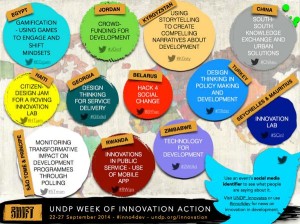One of the reasons I created the list of myths about virtual volunteering was because of journalists who kept writing articles that did not reflect the realities of online service. They loved to say “this is so new!” and that “it’s great if you don’t have time!”, for instance – despite virtual volunteering starting in the 1970s with the advent of the Internet and all volunteering, online or off, taking real time. I ask every journalist that calls me to read those myths before they interview me – and I can always tell if they have or not.
I have been in positions to develop assignments for online volunteers and to recruit and support volunteers in those assignments since 1994. When I lose volunteers in virtual assignments – the ones that disappear with their assignment undone – the excuse is almost always the same: I didn’t realize how much time this would take. Never mind that I tell all volunteers, up front, how much an assignment might take – and often, it’s a micro assignment, taking just minutes a day or a week. But even a few minutes a day, just once, is A FEW MINUTES A DAY.
This article by Good Housekeeping UK is representative of what so many journalists get wrong about virtual volunteering. Not only does this article claim the practice is new (it’s more than 30 years old), not only do they think it’s great for people that don’t have much time (most virtual volunteering assignments take just as much time as onsite volunteering assignments, just without the need to travel and park), and they think the terms micro volunteering and virtual volunteering are inter-changeable – they just can’t get it that, while micro volunteering online IS virtual volunteering, not all virtual volunteering is “micro.” You know, like group volunteering is volunteering, but not all volunteering is group volunteering.
The magazine even highlights one of my favorite initiatives, the online mentoring program Infinite Family, and then brands it as micro volunteering – despite the program requiring volunteers to make an ongoing commitment of several hours regularly – because that’s what kids deserve, not just a few minutes here or there that a volunteer might be able to spare.
You want to do a story on JUST micro volunteering? Great. Here are some initiatives you can mention:
Carnamah Historical Society virtual volunteering initiative (Australia) – Online volunteers help with transcription and indexing projects to make historical records more discoverable and searchable.
ebird database, supporting the National Audubon Society. You go “birding” or bird-watching, observing birds with your eye or binoculars, and then enter into the database when, where, and how you went birding, completing a checklist of all the birds seen and heard during the outing
Help From Home has a mix of volunteering activities you can do from home, both online and without a computer.
Koodonation, part of Sparked / Extraordinaries, hosts a database of online microvolunteering assignments (tasks that can be completed in around an hour or two online) in support of different nonprofit organizations. Both nonprofits and volunteers must register on the site to view microvolunteering assignments.
NetSquared, an initiative of TechSoup, is a place where nonprofits, corporations, government agencies, NGOs and individuals propose ideas that involve “the intersection of technology and social impact.” Anyone is welcomed to comment on the proposed projects on the site, and there are often opportunities to vote on which projects should receive funding.
Smithsonian Digital Volunteer program. The Smithsonian seeks to engage the public in making its collections more accessible. “We’re working hand-in-hand with digital volunteers to transcribe historic documents and collection records to facilitate research and excite the learning in everyone.” Transcription turns handwritten and typed documents into searchable and machine-readable resources, creating an incredibly valuable asset for art, history, literary and scientific researchers across the globe.
TechSoup has a series of discussion groups where nonprofits ask questions about technology. You can log into the community at any time and try to help nonprofits and volunteers with questions about software, databases and more. TechSoup also needs people to transcribe its most popular archived webinars (requires that you listen to the pre-recorded webinar and type what is said, re-listening as you need to in order to capture what is being said).
Wikipedia, the largest online volunteering initiative in the world. To volunteer, you simply find an article you have some knowledge of and add information to the entry.
And that’s just the virtual volunteering that is “micro” – there’s LOTS more virtual volunteering assignments that allow you to take on leadership roles, manage an entire project, work as a team with other online volunteers, build relationships with other people, and more. I have many links to various initiatives you can get involved with here.
There is no excuse for this flub, Good Housekeeping. NONE.
 Why no, I’m *not* the only person who talks about Virtual Volunteering / e-volunteering / digital volunteering, etc.
Why no, I’m *not* the only person who talks about Virtual Volunteering / e-volunteering / digital volunteering, etc.


